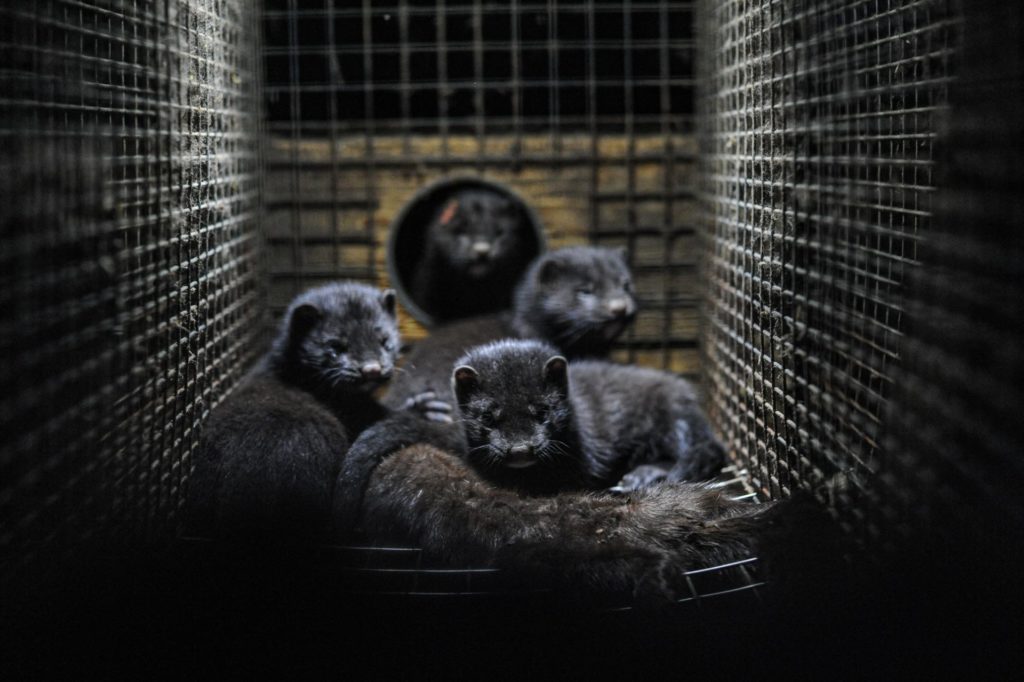A week after the mutated Covid-19 virus discovered in farmed mink was described as “most likely eradicated”, the infection has been reported in France and Poland.
The problem was first reported in Denmark, where five mutations were found, only one of which could cross to humans. However the matter was considered serious enough for the government to order a cull of all 17 million mink farmed in the country – the world’s second-largest producer of mink fur.
The cull order was later overturned by a court ruling that there was no legal basis for killing millions of animals that may never have been infected.
The Danish agriculture minister resigned, and his colleague at the health department announced that the mutation known as Cluster 5 had been almost certainly eradicated.
Fast forward to Monday this week, and a report that the SARS-CoV-2 virus has been found in one mink farm in France. The country has four mink farms, but only one has had a confirmed finding, leading to a cull of 1,000 animals.
Another farm has been declared clear, and the two remaining are awaiting test results, expected some time this week.
Minks are farmed for their fur, but French agriculture minister Julien Denormandie said the “products from the animals” culled had been destroyed.
“At this stage, analyses allowed us to reveal that the virus was spreading in a farm in Eure-et-Loir,” the ministry said in a statement.
“As soon as we knew the results of these tests, the ministers concerned ordered the total slaughter of the 1,000 animals still at the farm, and the elimination of all the products from these animals.”
Denormandie commented to FranceInfo, “At this stage, I cannot tell you how this situation occurred. All biosecurity measures were taken. In France, we only have 20,000 mink, in four farms. We are following them as closely as possible, case-by-case.”
Meanwhile, the virus having been also detected in the Netherlands, where a cull was ruled out, and in Sweden, the disease has now raised its head among mink in Poland, the third-largest producer in the world after China and Denmark.
According to the Medical University of Gdansk, eight animals were found to be infected at a farm in the Pomeranian Voivodeship (roughly equivalent to a province) where Gdansk is situated.
“This is the first case of confirmed infection of farm animals with the SARS-CoV-2 virus in Poland,” the university said in a statement.
“The results obtained indicate the possibility of transmission of the virus from humans to mink. In-depth genetic research is currently underway to determine the probable origin of the virus and to enable comparison with known SARS-CoV-2 genetic sequences.”
Meanwhile in Belgium, the question falls under the authority of the federal food safety agency, which carries out regular tests. So far, according to Flemish animal welfare minister Ben Weyts (N-VA) answering questions in the Flemish parliament, there has been “no trace of corona infections in animals in Flanders”.
The region has 17 mink farms, due to close in 2023. The government has offered compensation, but farms will lose 10% of that for every year they delay closing down.
Alan Hope
The Brussels Times

